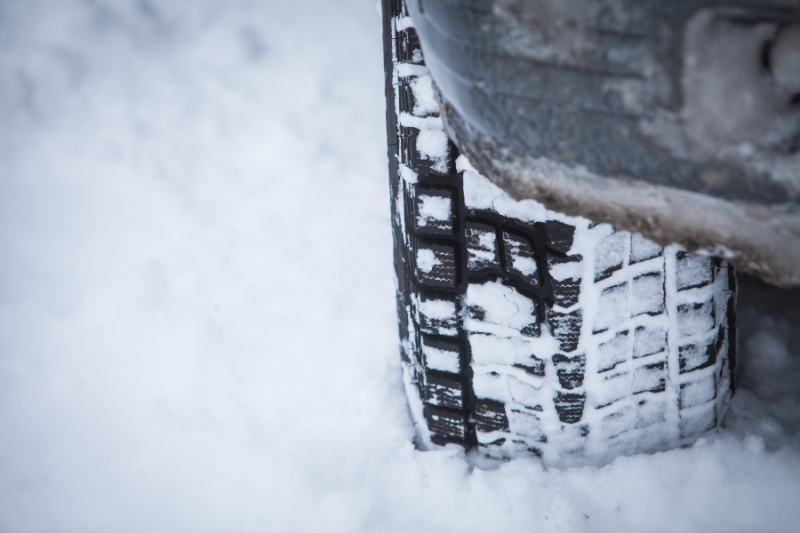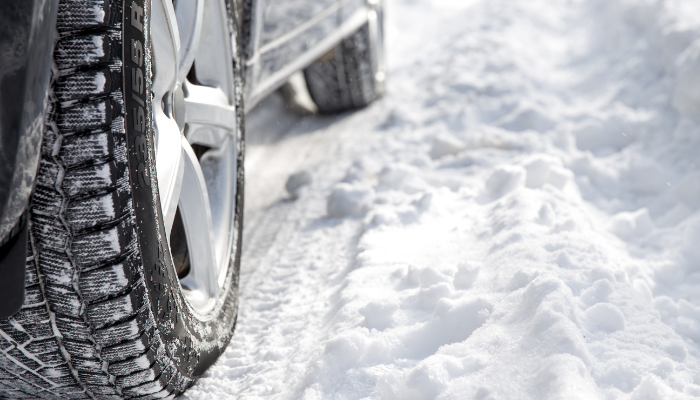Caring for your car during Winter
Winter months can be harsh, not only on our skin and our health but also our vehicles. From October onwards, the weather can turn wet and bitter, meaning when we park our pride and joy on the driveway, it is battered by the elements. This weather can sometimes last right through to the following April, particularly if you live in an area that is open to the elements.
These harsh conditions can also affect the way the car runs and our driving habits, which can pose a safety risk, so it’s important to treat your car well over the Winter months.
Driving style
Weather
Driving in Winter, or even Autumn and Spring is different to driving in the warmer Summer months. The weather is generally much wetter during the Winter, whether it’s rain, snow or simply just dew from the cold night.
Where the roads are wet, grip between the tyre and the road surface is reduced, meaning braking times are also reduced. By reducing your speed, especially on rural roads that tend to fluctuate speed limits, you can help prevent collisions.
When the weather takes a turn for the worse, either when it snows or ice produces, braking time is reduced drastically and driving style must be altered to accommodate for this.
Light
As the Winter approaches, the nights start to pull in and visibility is dramatically decreased during early morning and evening journeys.
You need to ensure you can see the road ahead and your surroundings as clearly as possible, which often involves switching between your side lights, headlights and full beams.
During foggy weather, you can switch to fog lights if you’re not in stop start traffic. It’s important to be seen as much as your ability to see other drivers ahead, especially in more rural areas where there is less street lighting.
Air conditioning
The air conditioning system will gradually start to switch from cold to warm as Autumn sets in, but it’s important to use it wisely. Having your air conditioning on the top setting will use more fuel, which can not only be costly, but also detrimental in Winter if you are running low already.
Set your air conditioning to a reasonable but comfortable setting and consider wearing more layers instead to preserve your fuel.
When you depart your vehicle, the moisture from the air conditioning unit struggles to evaporate so it makes it more difficult to demist the next time you use your vehicle.
Taking care of your car during Winter
As Winter approaches, it’s time to consider bringing your car in for a service. Vehicle servicing will ensure your vehicle is in a roadworthy condition ready for the harsh Winter months.
One thing people often do as Autumn ends is to change their tyres over to Winter tyres, which have increased grip on the road and perform much better in wet, but also snowy and icy conditions.

You may also want to ensure that your air conditioning is re-gassed, so it performs as efficiently as possible. When the system performs better, it often means you don’t need to have the settings as high, which can save precious fuel in the long run.
You will want to carry plenty of de-icer so you don’t run out when you need it most and also ensure your windscreen wash contains de-icer so it doesn’t freeze over. If this freezes over, no water will be available to clear your windscreen (until it has chance to defrost). You will find you need to clear your windscreen more often during the Winter as the road surface becomes dirtier. Large vehicles will throw up this dirt as they pass, which will form a layer on your windscreen.
Taking safety precautions
Not only is driving in Winter slightly more precarious, but if the unfortunate were to happen, whether a breakdown or a collision, you want to be prepared for the weather as you wait for assistance.
If your vehicle breaks down, you are advised to either stay inside your vehicle or move as far away as possible if safe to do so. Either way, you won’t be able to rely on your air conditioning/heating system, so it’s recommended you carry warm clothing and an emergency kit should you require it:
Safety kit
- Blankets
- Water
- Hazard signs (to warn other road users)
Emergency kit
- First aid kit
- Charged mobile phone
- Emergency telephone numbers
- Torch
Defrosting/demisting
During the Winter months, you will need to de-mist and de-ice your vehicle more often, usually on a morning, but also on an evening when the Sun has not had chance to warm the car.
De-icing will involve removing the layer of ice or frost on the outside of the windscreen. Don’t use boiling water as this can often crack the windscreen. A good de-icer and a scraper will work fine unless you have a heated windscreen which will save you the manual work.
De-misting involves removing the condensation from inside the windscreen and windows allowing you to see clearly. You will need to ensure all of the condensation is cleared before you start your journey as any obstruction could result in a collision with another road user or pedestrian.
Remember that this also applies to your rear windscreen as you will need full 360 visibility around your vehicle.
Condensation forms when vapour turns to liquid, so whether this comes from the air conditioning system or even breath from the occupants, this vapour needs to go somewhere.
This is the reverse of evaporation, which would occur in the warmer months and a reason there’s usually no need to de-mist in the Summer. During the Winter months, the temperature doesn’t get warm enough so the vapour becomes liquid when it is cooled to its dew point.



